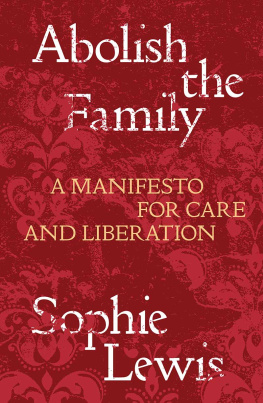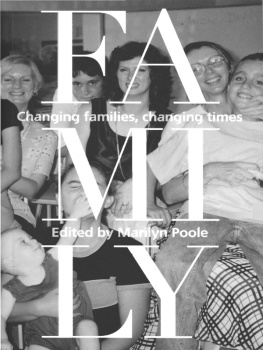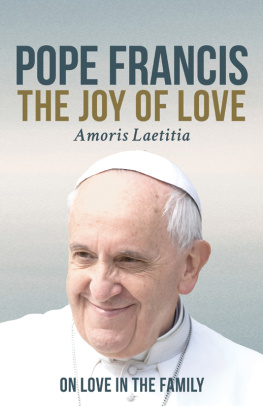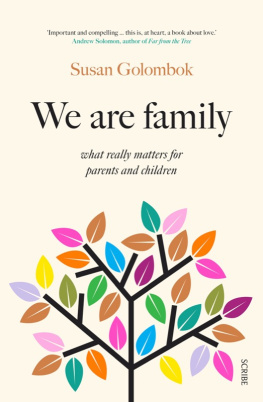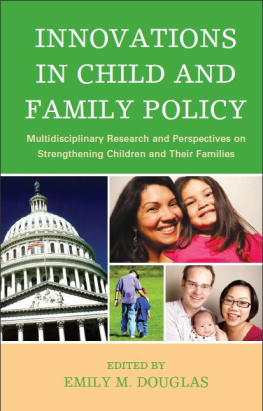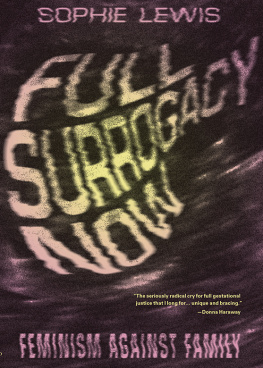Contents

Abolish the Family
Abolish the Family
A Manifesto for Care and Liberation
Sophie Lewis

I, the broom, dedicate this book to
the West Philadelphia cemetery commune.
First published by Verso 2022
Sophie Lewis 2022
All rights reserved
The moral rights of the author have been asserted
1 3 5 7 9 10 8 6 4 2
Verso
UK: 6 Meard Street, London W1F 0EG
US: 388 Atlantic Avenue, Brooklyn, NY 11217
versobooks.com
Verso is the imprint of New Left Books
ISBN-13: 978-1-83976-719-7
ISBN-13: 978-1-83976-721-0 (US EBK)
ISBN-13: 978-1-83976-720-3 (UK EBK)
British Library Cataloguing in Publication Data
A catalogue record for this book is available from the British Library
Library of Congress Cataloging-in-Publication Data
A catalog record for this book is available from the Library of Congress
Typeset in Sabon by Hewer Text UK Ltd, Edinburgh
Printed and bound by CPI Group (UK) Ltd, Croydon, CR0 4YY
Contents
There are other ways of naming each other as relations.
Tiffany Lethabo King
Abolish the family? You might as well abolish gravity or abolish god. So! The left is trying to take grandma away, now, and confiscate kids, and this is supposed to be progressive? What the fuck!?
Many people experience a reaction something like this, upon first encountering the phrase abolish the family. And thats okay. I will neither deny nor shy away from the slogans explosive emotional freight. My purpose in it is partly, to be sure, to clarify and correct the many possible aghast misapprehensions one can easily form about family abolition; for example, that it means forcibly separating people. But ultimately, I dont want to deny that there is something scary (psychologically challenging) about this politics. This same scariness is present in all real revolutionary politics, in my view. Our trepidation is our reflexive response to the premonition of an abolition of the self. All of useven those of us who own no property, who receive no guaranteed care, and who subsist at the blunt end of empire, whiteness, cis-hetero-patriarchy, and class will have to let go of something as the process of our collective liberation unfolds. If the world is to be remade utterly, then a person must be willing to be remade also. We sense this. And it is difficult, perhaps impossible, right now, to imagine not being manufactured through the private nuclear household and the oedipal kinship story (mother figure, father figure, child). Yet personhood was not always created this way, which means we could, if we wanted to, create it otherwise. In the meantime, if your kneejerk reaction to the words abolish the family is but I love my family, you ought to know that you are one of the lucky ones. And I am happy for you. But everyone should be so lucky, dont you think?
Loving the people in your family, mind you, is not at odds with a commitment to family abolition. Quite the reverse. I will hazard a definition of love: to love a person is to struggle for their autonomy as well as for their immersion in care, insofar such abundance is possible in a world choked by capital. If this is true, then restricting the number of mothers (of whatever gender) to whom a child has access, on the basis that I am the real mother, is not necessarily a form of love worthy of the name. Perchance, when you were very young (assuming you grew up in a nuclear household), you quietly noticed the oppressiveness of the function assigned to whoever was the mother in your home. You sensed her loneliness. You felt a twinge of solidarity. In my experience, children often get this better than most: when you love someone, it simply makes no sense to endorse a social technology that isolates them, privatizes their lifeworld, arbitrarily assigns their dwelling-place, class, and very identity in law, and drastically circumscribes their sphere of intimate, interdependent ties. But I am getting ahead of myself.
Most family abolitionists love their families. It is true of course that it is usually the people who have had bad experiences within a social system, and who feel things besides love for that system, who initiate movements to overthrow it. But loving ones family in spite of a hard childhood is pretty typical of the would-be family abolitionist. She may, for instance, sense in her gut that she and the members of her family simply arent good for each other, while also loving them, wishing them joy, and knowing full well that there are few or no available alternatives in this world when it comes to providing much-needed care for everybody in question. Frankly, loving ones family can be a problem for anyone. It might put extra weights around the ankles of a domestic battery survivor seeking to escape (especially given the economic punishments imposed by capitalism on those who flee commodified housing). It might hinder a trans or disabled child from claiming medical care. It might dissuade someone from getting an abortion. Right now, few would deny that reproductive rightslet alone justiceare everywhere systematically denied to populations. Austerity policies purposively render proletarian baby-making crushingly unaffordable, even for two or three or four adults working together, let alone one. Housework is sexed, racialized, and (except in the houses of the rich) unwaged. It is unsurprising, in these global conditions, that large numbers of humans do not or cannot love their families. Reasons range from simple incompatibility to various phobias, ableism, sexual violence, and neglect.
Let me tell you a secret: people get really angry when you suggest to them that they deserved better than what they got growing up. And Ive noticed that a lot of people have the but I love my family reaction with the most startling vehemence immediately after theyve spent a long time talking freely to me about the strain, tragedy, blackmail, and care-starved frustration that characterized their biological upbringing. Angry opposition to the idea that things could be different comes, Ive found, right after we have voiced the wish that relatives of ours could have been less alone, less burdened by caring responsibilities, less trapped. Those people are quite another matter, this defensive spasm seems to say: I, myself, dont need any family abolition, thank you very much. Sure, it may be a disciplinary, scarcity-based trauma-machine: but its MY disciplinary, scarcity-based trauma-machine.
Listen. I get it. Its not just that youre worried about your dad getting all upset if he sees you with this book. Its that its existentially petrifying to imagine relinquishing the organized poverty we have in favor of an abundance we have never known and have yet to organize.
What is the family? So deep runs the idea that the family is the exclusive place where people are safe, where people come from, where people are made, and where people belong, it doesnt even feel like an idea anymore. Let us unpick it, then.
The family is the reason we are supposed to want to go to work, the reason we have to go to work, and the reason we can go to work. It is, at root, the name we use for the fact that care is privatized in our society. And because it feels synonymous with care, family is every civic-minded individuals raison dtre par excellence: an ostensibly non-individualist creed and unselfish principle to which one voluntarily signs up without thinking about it. What alternative could there be? The economic assumption that behind every breadwinner there is a private someone (or someones) worth being exploited for, notably some kind of wifethat is, a person who is likely a breadwinner toofreely making sandwiches with the hard-won bread, or hiring someone else to do so, vacuuming up the crumbs, and refrigerating leftovers, such that more bread can be won tomorrow: this feels to many of us like a description of human nature.

